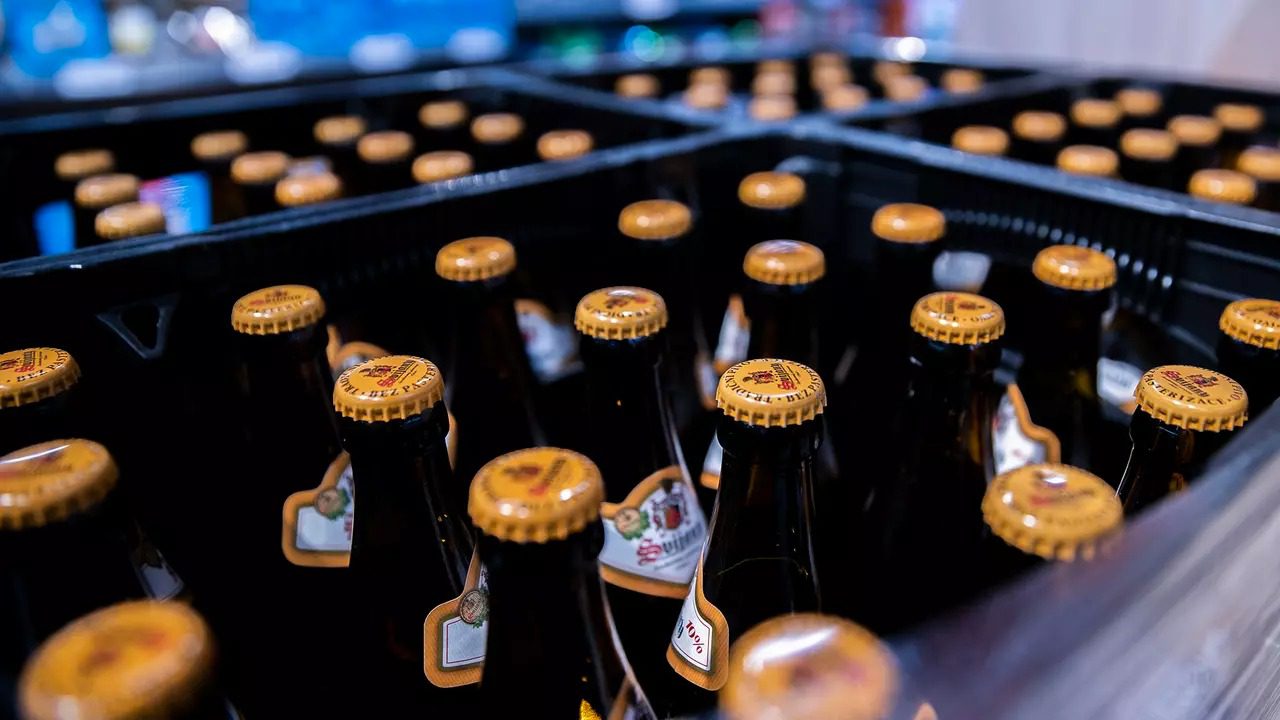Czech retail chains are calling for reform of the country’s beer bottle circulation system, which they claim costs millions of crowns yearly. According to the Association of Commerce and Tourism, the current system is unsustainable due to the increasing number of bottles and packaging, and retailers are calling for changes to the system to reduce costs. There are currently around 20 beer bottles on the market and 50 different types of packaging, with several additional deposit fees.
Jaroslav Vodáček, a manager at the Tesco retail chain responsible for dealing with packaging, has stated that the system’s constantly growing number of bottles and packaging is unsustainable. The Association of Commerce and Tourism believes that now is the opportune time to reform the beer bottle circulation system, as a law on depositing PET bottles and cans is currently being prepared. They suggest a single deposit fee, with an ideally limited number of beer bottle types, should apply.
At present, there are around 20 different types of beer bottles on the market, which vary in color, shape, and even three-dimensionally highlighted brand logos. Some, such as the bottles from the Primátor brewery or the family brewery Bernard, are atypically shaped. Some, like Budějovický Budvar and Pilsner Urquell, have the logo embossed on the glass.
Around 50 different types of packaging vary mainly because they are marked with the breweries’ logos and require additional deposit fees. The standard deposit fee is three crowns, but the premium Bernard bottle has a deposit fee of seven crowns. Tesco’s Vodáček has explained that sorting bottles in stores and logistics centers is challenging, and retailers in the Czech Republic bear the costs. In Germany, there are specialized companies that sort bottles for breweries.
Retailers are legally required to accept only deposit bottles from brands they sell. Glass packaging is pre-sorted by employees in the background to ensure that the correct bottles are placed in the packaging. However, this system of manual sorting in stores is not entirely effective.
Vodáček explained, “This manual sorting system in stores does not work; it is very much about people, and there is not enough space in the stores. You can’t have 50 different types of packaging there. It is even more difficult for smaller retailers.” Tesco, therefore, transports bottles to the distribution center, where sorting takes place, and breweries then collect the sorted bottles from there.
Retailers are calling for reform of the beer bottle circulation system in the Czech Republic, stating that the current system is unsustainable due to the increasing number of bottles and packaging, which are costly to sort and store. They suggest that a single deposit fee should be applied to reduce costs, with an ideally limited number of beer bottle types.
The Association of Commerce and Tourism believes that now is an opportune time to reform the system as a law on depositing PET bottles and cans are being prepared. The types of beer bottles on the market vary in color, shape, and even three-dimensionally highlighted brand logos, with around 20 different types available.
Around 50 different types of packaging are marked with breweries’ logos and require additional deposit fees. Retailers are legally required to accept only deposit bottles from brands they sell. Still, this manual sorting system in stores is not entirely effective, according to Jaroslav Vodáček from Tesco.









